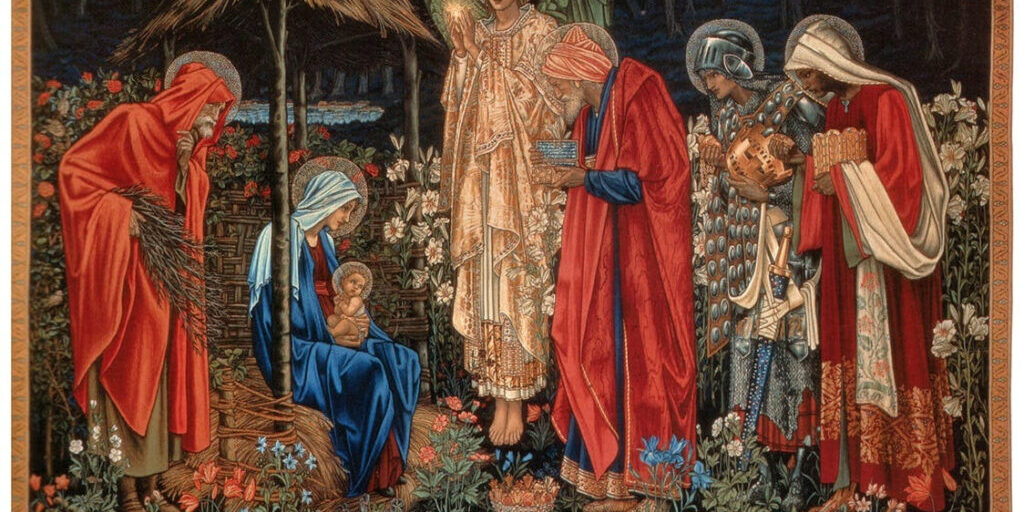
Epiphany and the Circumcision of Christ: The whole life of Christ in my Systematic Theology
The following update on Matthew Barrett’s Systematic Theology comes from his regular newsletter: subscribe here.
January is such a cold, dark month, at least if you live in the Midwest. But if you are learning from the church calendar, January is a month brimming with light because the Savior has been “manifested.” ‘Tis the season of Epiphany. And it just so happens that I am writing on the “appearance” of Christ in my Systematic Theology. From the circumcision of Jesus to the visitation of the magi, to his increase in wisdom and favor with God at the temple, to his baptism by John—here begins the revelation of the Christ in the flesh. I find it sad that Epiphany is so foreign to so many Christians today, which might explain why they have never heard their pastor teach on these early stages of the incarnation, nor do they understand their significance.
Consider Jesus’ circumcision. His circumcision prefigured the passion yet to come and with it, the liberation the Spirit alone could bring about within us. In the passion, the one who knew no sin released us from the condemnation of our sin by subjecting himself to death.Epiphany has motivated me in a unique way: my systematic will not focus exclusively on the cross of Christ but will consider why the entire life of Christ is our liberation. Click To Tweet He bore in his body the penalty of the law. But that burden on his body began at his birth and shortly thereafter with his circumcision. In other words, our Lord subjected himself to circumcision on our behalf. Here is the genesis of our liberation, the circumcision of our heart as the prophets Jeremiah and Ezekiel promised. As Thomas Aquinas says, “By removing the foreskin of the generative member, circumcision signified the stripping off of the old generation, from which we are freed by the passion of Christ. Accordingly the truth of the figure was not fully realized in the birth of Christ but in his passion, before which circumcision had its effectiveness and status. And so it was right that as a son of Abraham, Christ should be circumcised before his passion” (ST 3a. 37.1).
We often speak of the cross in substitutionary terms, but if Jesus’ circumcision prefigures his passion and, consequently, our regeneration—if circumcision itself is the beginning of our freedom (“the stripping off of the old generation”)—then circumcision cannot be precluded from the vicarious nature of the work of Christ. In a profound statement, Thomas writes, “Just as Christ of his own will took upon himself our death, which is a result of sin, while he himself had no sin, that he might free us from death and spiritually cause us to die to sin, so, too, he underwent circumcision, which is a remedy for original sin. He accepted this though he had no sin, so that he might free us from the yoke of the Law, and bring about in us a spiritual circumcision. Thus by assuming the figure he fulfilled the reality” (ST 3a. 37.1).
Epiphany has motivated me in a unique way: my systematic will not focus exclusively on the cross of Christ but will consider why the entire life of Christ is our liberation. In that spirit, have a blessed Epiphany this January.
What else has accompanied my writing and research of late?
I mentioned last time that the Center for Classical Theology met, and it was a true encouragement. 
In other news, Ronni Kurtz, Sam Parkison, Joseph Lanier, and I have a book coming out: Proclaiming the Triune God. Here is proof you can preach the Trinity! These are sermons that we have dressed up for publication, and my hope is that they will teach pastors to make Nicene trinitarianism a priority in the pulpit, the liturgy, and the life of the church.

Speaking of liturgy, if you hang around me long enough you will learn how much I care for lectio divina both in the life of the believer and in the life of the church. We devoted the last issue of Credo Magazine to introducing a divine reading of scripture with its fourfold ladder of reading, meditation, prayer, and contemplation. Classical theology is not just a theology but a spirituality. It shouldn’t surprise us that some don’t “get” classical theology because they have never been taught to read their Bibles through a classical lens like the lectio divina.

I recently sat down with Dominic Legge on the Credo Podcast to ask him if the incarnation “changed” God (a common mistake in contemporary Christology). And the first ever Credo Magazine book awards released! I will be interacting with each of these books in my systematic—from Petrus van Mastricht to John of Damascus. I should add, Matthew Levering’s book Reconfiguring Thomistic Christology makes a true contribution at the intersection of biblical theology and metaphysics.
I’m Matthew Barrett. Until next time, do explore Credo Magazine, meet other theologians on the Credo Podcast, and participate in the Center for Classical Theology. You can follow me on twitter: @mattmbarrett



